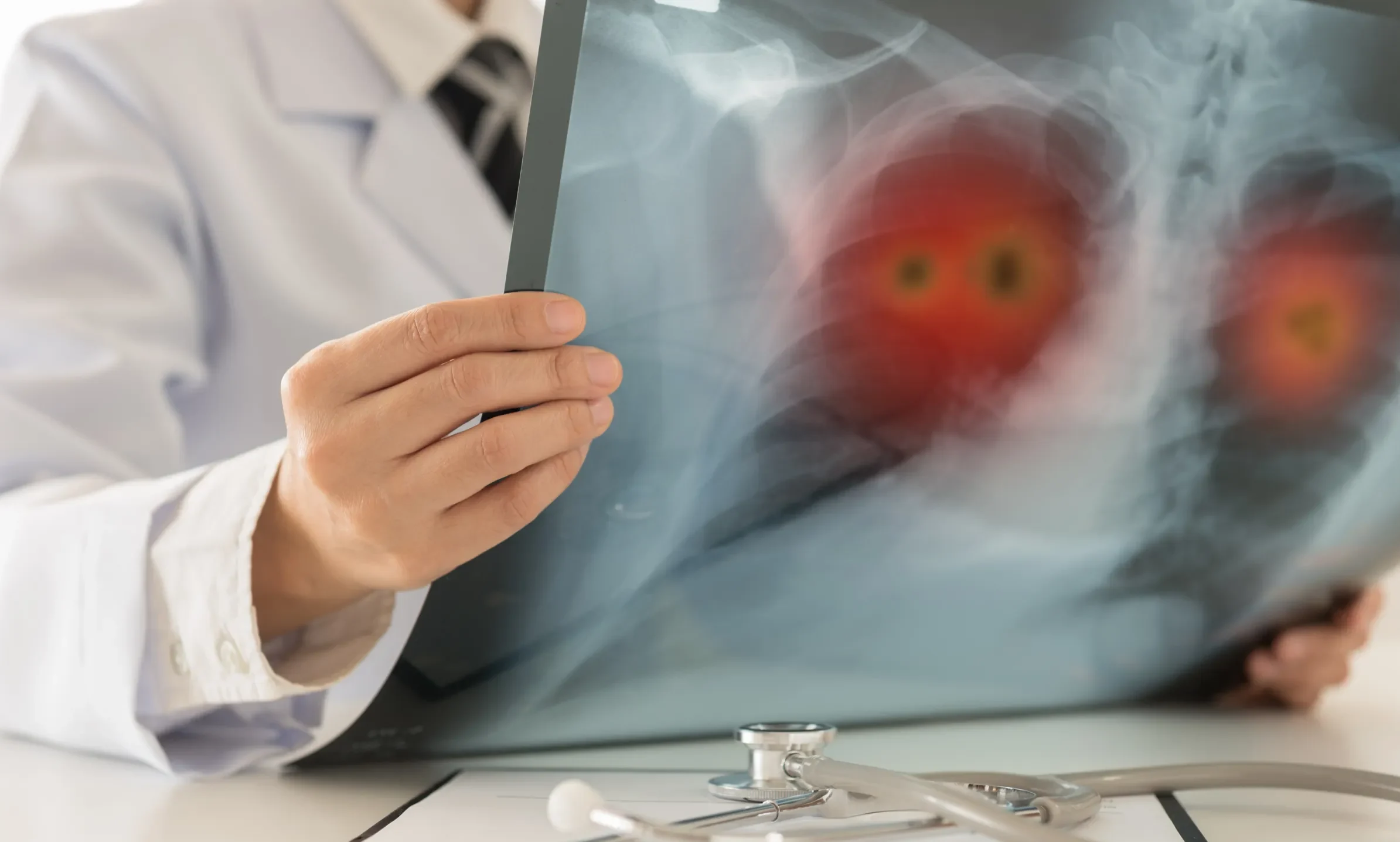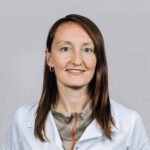-
 News
Australia launches national lung cancer screening program: a new approach to cancer prevention among high-risk patients
News
Australia launches national lung cancer screening program: a new approach to cancer prevention among high-risk patients
-
 News
In stressful situations, people make riskier decisions
News
In stressful situations, people make riskier decisions
-
 News
Stem cell transplantation can completely cure people with severe diabetes
News
Stem cell transplantation can completely cure people with severe diabetes
-
 News
Updated COVID-19 vaccines have been shown to be effective against severe forms of the disease
News
Updated COVID-19 vaccines have been shown to be effective against severe forms of the disease
-
 News
Surgical intervention combined with speech therapy improves speech after a stroke
News
Surgical intervention combined with speech therapy improves speech after a stroke
All news
Prostate cancer treatment
This is one of the most common cancers in men, but the success of treatment in the early stages is so high that today the main task is comfort of treatment and the patient’s future life.
Robotic surgery, radiotherapy with implantation of navigation sensors, an ultrasonic scalpel and laser evaporation – today patients has many options how to forget about the disease without erection dysfunction and urinary incontinence.
In the later stages it is possible to combine immunotherapy, targeted therapy, hormone therapy or special drug that accumulate in the bones and inhibit metastases.
MedTour patients recommend clinics for the treatment of prostate cancer:
Doctors for the treatment of prostate cancer
Patient reviews
Рудченко Олексадр Украіна. Велике спасибі за професіоналізм та чуйність до всього колективу відділення, особливо лікарю Марісу Межецкісу. Лікування відбувалося у січні 2023 року.
I had prostate cancer and I decided to have a surgerv in Medipol clinic. I have heard about it from my friends to did the same surgery here. I was amazed about modern technology in this hospital! Doctors and nurses are super polite and educated. Everyone speaks english and is ready to help in every situation. My turkish surgeon was the best doctor, which I have ever met in my life. Results of the surgery are estounishing. I feel myself great and I am very thankful to MedTour for organizing my medical trip!
Frequently Asked Questions
The prostate is an exocrine gland of the male system. Prostate carcinoma is a malignant cancer of the organ.
Prostate cancer develops due to a combination of factors: heredity, genes mutations, poor nutrition, and bad habits. The peak incidence occurs in 66 years, overweight men and men with heredity oncology are at a higher risk.
In most cases, prostate cancer symptoms are not apparent in the early stages of the disease. Then signs appear with:
- Difficulty urinating, or trouble starting and stopping while urinating
- Burning or pain during urination
- Blood in semen
- Difficulty getting an erection (erectile dysfunction)
Basic diagnostics: digital examination and ultrasound of the prostate, PSA analysis, biopsy with Gleason histology, MRI and CT with contrast, osteoscintigraphy.
The most accurate examinations for prostate cancer:
- new markers that allow to identify the disease before an ultrasound and biopsy (for example, PCA3 instead of PSA)
- color dopplerography with contrast shows areas with an increased blood flow characteristic of prostate cancer
- MRI-controlled biopsy gives an accurate result and is less traumatic
- PET-CT with special reagents for the prostate allows you to find a tumor up to 1 mm in any part of the body
- genetic tests show the aggressiveness of the tumor and its sensitivity to treatment.
PSA is a prostate-specific antigen protein produced by both cancerous and noncancerous tissue in the prostate. Men with prostate cancer may have elevated levels of PSA.
Normally, its amount does not exceed 4ng / ml.
- With a PSA of 4-10 ng/ml, prostate cancer is found in 25% of patients
- With PSA> 10, chances of finding prostate cancer exceed 50%
Based on the picture of free and bound PSA, and the results of genetic tests, the doctor prescribes the appropriate medications for cancer treatment.
Prostate cancer 5-year relative survival rates according to ACS (2020):
- Localized — nearly 100%
- Regional — nearly 100%
- Distant — 31%
- All stages combined — 98%
Rates are based on the stage at the time of the detection of the disease and do not take into account age, PSA level, Gleason scale, and other factors.
In countries with medium and low levels of medicine, the average treatment success is one third lower (65% by RJO — Russian Journal of Oncology).
Prostate cancer can be cured at any stage. This requires a complete and informative examination (blood tests, laboratory tests of the tumor, the results of PET-CT, osteoscintigraphy and genetic tests), based on which the doctor prescribes the right treatment from modern methods of therapy:
- Low-traumatic non-surgical methods for the removal of tumor (laser, radiofrequency, ultrasound, or cryo removal).
- Safe and accurate methods of radiation therapy (IMRT according to the method of SS, SW, or VMAT).
- Modern hormone therapy and immunotherapy drugs with minimal side effects. (Enzalutamide, apalutamide, darolutamide).
Issues that may occur during or immediately following the procedure include infection or bleeding at the surgery site, reaction to anesthesia, and damage to nearby organs.
The inability to control urine, urinary incontinence and trouble getting and keeping an erection, erectile dysfunction (ED) are the most common complications that can occur post-op.
Urination problems are restored on their own within a month. Irreversible urination problems can be corrected.
The rate of risk for ED depends on a number of factors. The younger the patient, the more likely he is to be able to maintain control of his erection.
The result primarily depends on the experience of the surgeon, therefore, the urological departments with surgeons specializing in prostate cancer have a smaller number of side effects.
Patients with cancer that will develop for more than 20 years can do without surgery. Genetic counseling and screening tests predict the development of the disease without treatment.
If intervention is necessary, a patient can choose a HIFU ultrasonic scalpel, a laser from marine kelp, a NanoKnife, cryoablation, or radiofrequency evaporation instead of the surgery. These methods are performed without incisions on the body.
Modern radiation therapy is modulated therapy according to the SS, SW, or VMAT technique which cures prostate cancer without surgery.
- Using Da Vinci robot for surgery reduces blood loss and the risk of erectile dysfunction and urination problems.
- Non-surgical methods for the removal of prostate cancer (HIFU, NanoKnife, and TOOKAD) are painless and fast, the patient stays in the clinic just for a few hours.
- Intensity-modulated radiotherapy (IMRT) in combination with the Calypso 4D navigation system is tracking prostate movements during irradiation and beam correction to maximize effect and minimize exposure to healthy tissue. This method is more effective and safer than brachytherapy and CyberKnife.
- The latest generation of targeted, hormonal, and immunotherapy drugs destroy cancer cells, block their formation, and slow down growth and development with minimum side effects.
Most often, prostate cancer spreads to the bones or lymph nodes. It’s also common for it to spread to the liver, brain, or lungs.
Rarely, prostate carcinoma metastasizes to muscles, kidneys, and pancreas.
The best countries for treatment are Germany, Israel, Turkey, Spain, and South Korea. The quality of treatment depends on the doctor’s experience and all modern diagnostic and treatment methods.
MedTour selects the best clinics by patients` reviews, the availability of international certificates, and the most advanced methods: HIFU, TOOKAD, NanoKnife, IMRT Calypso 4D, Da Vinci.
Diagnosis and treatment program for prostate cancer in 2020 (International protocols according to NCCN and ACS)
How patient is being examined in the world’s advanced clinics?
Recently developed screening tests now allow identifying prostate cancer more accurately than PSA (PHI, 4Kscore, PCA3, TMPRSS2: ERG, EPI, ConfirmMDx). A patient with low scores can do without transrectal ultrasound (TRUS), biopsy, and related complications.
MR / ultrasound fusion biopsy is the most accurate sampling method for research. It shows «blind» zones for TRUS and gives the correct diagnosis after the first procedure. Samples from the «clean» areas are not taken, which reduces the invasiveness of the procedure.
The new types of PET-CT scans can detect cancer foci with an accuracy of 1 mm even in the blind areas for MRI, CT, and osteoscintigraphy. Ga68-PSMA, C11 / F18-Cholin, or F18-Fluciclovine are used for different tasks in the search for cancer cells.
Genetic tests of tumor mutations and DNA predict how the disease will develop without treatment. (Oncotype DX Prostate, Prolaris, ProMark, Decipher). According to the results, patients at low risk can refuse surgery and radiation therapy, without the risks of complications.
What treatments for prostate cancer are used in advanced cancer centers?
Surgery — tumor removal. To reduce risks and side effects, the surgery is performed on a Da Vinci robot, or TURP transurethral resection of the prostate is used.
Alternative non-surgical methods are ultrasonic scalpel (HIFU), laser (TOOKAD), microwave scalpel (NanoKnife) for the early stages and radiofrequency and cryoablation for the late stage. It removes the tumor without incisions.
Hormone therapy is a group of techniques: from surgical castration to the latest drugs: abiraterone (Zytiga), enzalutamide (Xtandi), apalutamide (Erleada). This type of treatment blocks the growth and division of prostate cancer cells.
Chemotherapy — drugs that slow down and disrupt the division processes in the cells. Recent studies have proven the effectiveness of the two drugs for the treatment of prostate cancer: docetaxel and cabazitaxel.
Immunotherapy is the latest drug for the treatment of prostate cancer (sipuleucel-T, pembrolizumab, and nivolumab). They change oncological cells so that the immune system starts to perceive them as heterogeneous bacteria. Human immunity destroys such cells.
Targeted therapy — drugs that block the formation of cancer cells in men with specific hereditary mutations (olaparib, rucaparib, and niraparib for BRCA2 mutations). The second group of targeted drugs destroys cancer cells with specific mutations (monoclonal antibodies).
Radiation therapy — these new devices with advanced tracking systems for the movement of the bladder, intestines, and prostate, revolutionized prostate cancer treatment. During the session, the machine dynamically adapts the rays to the tumor with maximum accuracy. This will destroy the lesion, preserving the prostate, erection, and urination function.
The treatment of prostate cancer with chimeric antigen receptors — which recognize and destroy cancer cells throughout the body, is being investigated. It is available only at a few research institutes in the world.
What surgical procedures for prostate cancer are performed in specialized centers?
Traditional methods:
Open surgery with access through the pubis or perineum. Occasionally is used in stages III-IV and removes fiber and lymph nodes in full. Rehabilitation takes 3-4 weeks.
Laparoscopic surgery through the rectum is less traumatic. Recovery takes 1-2 weeks. The frequency of erectile dysfunction and urination disorders does not differ for open and laparoscopic surgery.
Innovative methods:
Transurethral resection of the prostate (TURP) is carried out using a resectoscope, which is a thin metal tube containing a light, camera, and loop of wire. This is passed along the urethra until it reaches the prostate, which means no incisions need to be made. The procedure lasts 1 hour and does not require complex skills from the doctor. Used to reduce symptoms, but not to cure prostate cancer! Therefore, it is necessarily combined with other methods (radiation therapy, targeted therapy).
Robotic operation is a laparoscopic removal with the Da Vinci robot. The method minimizes blood loss, pain, and the duration of rehabilitation after surgery. The frequency of urination disorders and erectile dysfunction may be lower than with standard laparoscopy, however, this is more dependent on the experience and skills of the surgeon, and not on the method itself.
How to choose a clinic for prostate cancer treatment?
Specialized cancer centers in countries with advanced medicine show the best success rates for prostate cancer treatment — about 98%. New diagnostic methods allow you to quickly and accurately identify prostate cancer, predict its development, and choose the right treatment tactics. The surgeon’s experience determines the risk of recurrence of the disease, the invasiveness of the surgery, and the timing of rehabilitation.
Erectile dysfunction and impaired urination after surgery develop in less than 25% of patients if the doctor performs it efficiently. In the leading clinics, non-surgical treatment methods are available that allow you to recover without incisions and rehabilitation, staying at the clinic for only a few hours.
Modern drugs of immunotherapy and hormonal therapy have made it possible to do without the surgical castration of men. Such drugs have fewer side effects, and the addiction of the body takes much longer, which allows you to continue taking drugs in low doses.
Published:
Updated:


Information on this webpage verified by the medical expert









I want to share my experience with Liv Hospital, where I had a prostate removal surgery due to cancer. From the very beginning, everything was well-organized – the staff helped me with all arrangements, and the doctor explained everything in detail. The hospital itself is very modern and clean, which made me feel more comfortable.
The surgery went well, and I was surprised how fast I started recovering. Now, a few months later, I feel much better and my tests show good results. I’m really grateful to the doctors and nurses at Liv Hospital for their professionalism and care. If anyone is looking for high-quality prostate cancer treatment, I can definitely recommend this place.